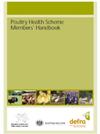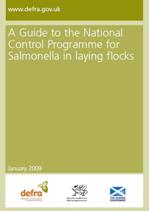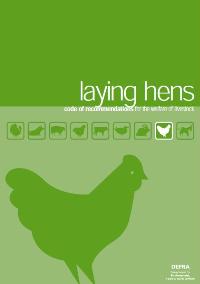Laying Hens
Introduction
Veterinarians at Crowshall Veterinary Services have a wealth of experience and knowledge in the management, health and welfare of laying hens. The knowledge is diverse, ranging from standard commercial production through to organic and free range. This section of the website provides some additional resources which may be of benefit in managing farms on a day to day basis.
Scroll down to find more information on the following areas:
- Codes and Schemes
- Medicines and Vaccines
- Infection and Disease
- Flock Monitoring
- Laboratory Services
- The Poultry Register
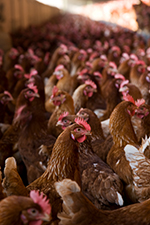
Codes and Schemes
Many farms in the UK operate to Lion Code standards. Further information relating to this code can be sourced by clicking the LION CODE Logo below. Some producers may be producing to Freedom Food Standards and more information regarding their schemes can be sourced by clicking the RSPCA Freedom Food Logo here.
Layer Breeders- Poultry Health Scheme
The Poultry Health Scheme has been established to allow members to freely trade within the European Union. The Scheme include hatching eggs, day old chicks and birds. The scheme requires a minimum standard of biosecurity as well as a routine monitoring programme for Salmonella and Mycoplasma. A Guide to the Poultry Health Scheme can be found by clicking the logo below.
Medicines/Vaccines

Veterinary medicine in the poultry industry is aimed at preventing disease. In order to acheive this vaccination programmes should be tailored to each company and production group using a risk based vs cost approach. From time to time there may also be the need to use medications such as antimicrobials. Like humans animals too can become ill from time to time and in order to safeguard bird welfare medication may be prescribed. Products used must have either a UK Marketing Authorisation (approved by the Veterinary Medicines Directorate) or have been imported under a Special Import Certificate (SIC) granted by the VMD. If you require more information on products with UK marketing authorisation then please link to the National Office of Animal Health (NOAH) Website by clicking the logo here to access Summary of Product Characteristics (SPC's).Crowshall customers who are registered for "Clients Services" may request a free Medicines Record book by logging in.
Infection and Disease
Crowshall Veterinary Services have a disease library where you can learn more about some of the infections that may affect your birds. This service is exclusive to Crowshall Veterinary Services customers that have registered for "Client Services". If you are a Crowshall Customer and would like to registers for Client Services click here.
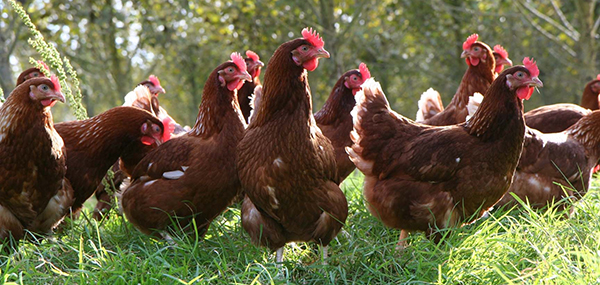
Flock Monitoring
It is very important to discuss flock health and monitoring with your veterinarian. Some monitoring is statuatory such as in the case of Salmonella as require under the Control Of Salmonella in Poultry order 2007 and National Control Programmes, some is necessary if part of codes or schemes such as the LION CODE or The Poultry Health Scheme whilst some is voluntary and may form part of a health screening programme.
- For more information about Crowshall Veterinary Services Laboratory please click here
- For more information on Salmonella testing at Crowshall Veterinary Services click here
- For more information on Blood testing (serology) at Crowshall Veterinary Services click here
- For more information on Total Viable Count (TVC) testing at Crowshall Veterinary Services click here
Laboratory Services/Laboratory Reporting/Sampling Materials
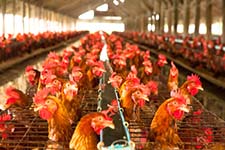
Crowshall Veterinary Services offer full laboratory support to our customers for routine flock health monitoring but also as part of our diagnostic approach to disease control. All results can be reported electronically via an online account to which existing customers may subscribe. Click here to log-on or register for "Client Services - REPORTING.
The Poultry Register
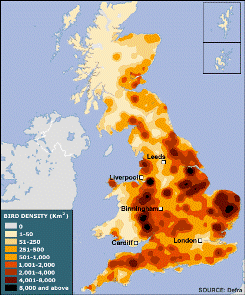

All flock producers who rear more than 50 birds have a legal obligation to register their flocks with DEFRA. This information may become critical in the event of a notifable disease outbreak (ie Avian Influenza or Newcastle Disease). If you have not already registered with DEFRA it is important that you do so as soon as possible. Click on the DEFRA logo to link to the online registration form.
Welfare
All producers have a obligation to protect the welfare of birds under their care. Legislation in Europe and UK is in place in order to provide a framework to protect our livestock.
For more information on the Statutory instruments applicable to chicken production see below:
- To download The Animal Welfare Act 2006 click here
- To download The Welfare of Farmed Animal Regulations (England) 2007 click here
In addition to legislation there is a Code of Practice to which producers must be work.
Codes of Practice have been established and provided to Government by the Farm Animal Welfare Council (FAWC) and are built on the following five principles:
- 1. Freedom from Hunger and Thirst - by ready access to fresh water and a diet to maintain full health and vigour.
- 2. Freedom from Discomfort - by providing an appropriate environment including shelter and a comfortable resting area.
- 3. Freedom from Pain, Injury or Disease - by prevention or rapid diagnosis and treatment.
- 4. Freedom to Express Normal Behaviour - by providing sufficient space, proper facilities and company of the animal's own kind.
- 5. Freedom from Fear and Distress - by ensuring conditions and treatment which avoid mental suffering.
For more information on FAWC click below: 
Please click the link below to look at the Code of Recommendation for the Welfare of laying hens.






